Transforming Schools Through Strengths-Based PD
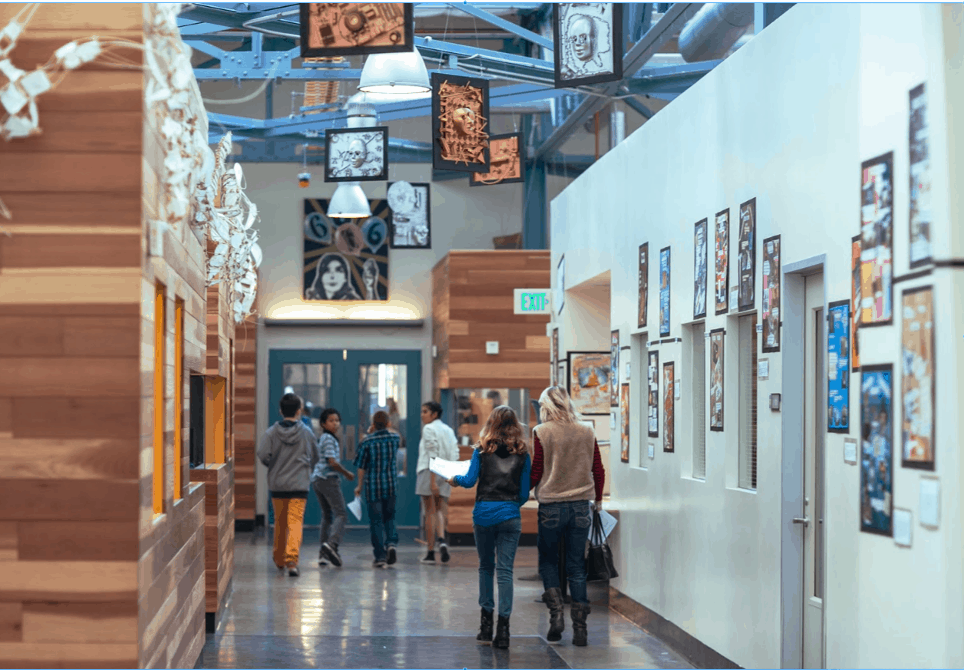
By Laura McBain
“You are allowed to be a masterpiece and a work in progress, simultaneously.”
What would professional development look like if we focused on our greatest strengths as opposed to our greatest deficits?
Transformative change in schools begins with the recognition that every participant has a best practice to share. It is about helping teachers and schools become the best versions of themselves.
This was the mindset I started with when I began working with an urban school called Chicago Tech Academy in the South Side area of Chicago. In May of 2014, the school was on the brink of being closed by Chicago Public Schools. Low test scores, low staff morale and low student engagement laid heavy on a school already struggling with the violence and equity issues prevalent in Chicago. If students wanted to use the restroom, they were escorted by a security guard.
After speaking with the staff, we knew they were familiar with outsiders coming in and telling them how to teach and how to fix their school. Therefore, when we started helping with their professional development, we made a deliberate choice to focus on celebrations. We wanted the professional development to be a rebirth of their passion for teaching and their commitment to equity, rather than a laundry list of things to fix. Instead, we thought about the assumptions of appreciative inquiry which suggest that:
- In every society, organization or group, something works;
- What we focus on becomes our reality;
- Reality is created in the moment, and there are multiple realities. If we carry parts of the past forward, they should be what is best about the past;
- It is important to value differences; and
- The language we use creates our reality.
We began the work of designing a disruptive and celebratory professional development program. Our aim was not merely to shift the pedagogical practices of teachers but rather to create a program that cultivated a growth mindset toward teaching and learning.
We knew the teachers needed to experience deeper learning for themselves if they were ever to create it with their students, so we went out into the streets. On the first day of training, we visited the most prominent neighborhoods in which their students resided and investigated how a community creates and sustains a culture.
In groups, they explored, interviewed and created artifacts that represented their learning. Everyone participated. Teachers, aides and leaders alike were involved in the work. After the day was over, we unpacked the learning experiences. We broke down every exercise, every facilitator move and (more importantly) acknowledged that some of our initial assumptions about the students were incorrect.
For me, this opening day activity served two purposes. First, it acted as a unifying experience for the staff to help bring them together. Second, it served to disrupt the staff’s current thinking about what teaching and learning was supposed to look and feel like in schools.
But we knew a disruptive and unifying experience was not enough. Camille Farrington’s work on Foundations for Young Adults suggests that for a mindset shift to occur, one has to habitually be able to make meaning for themselves and have a shared sense of belonging in the community.
So we set about creating structures in the ongoing staff meetings that would engender reflection and community building in the hopes that we would create an adult learning where staff felt valued and were free to take risks. We hoped that if the staff were able to feel a sense of celebration and accomplishment about their own work, they would bring this same feeling to their students.
Two years in and what we started is working. The school has been given a three-year waiver by Chicago Public Schools, attendance is hovering at 90%, and 100% of seniors are about to begin academic internships. Instead of seeing students escorted to the bathrooms, visitors are greeted by student ambassadors in every classroom and student work covers the hallways of the schools.
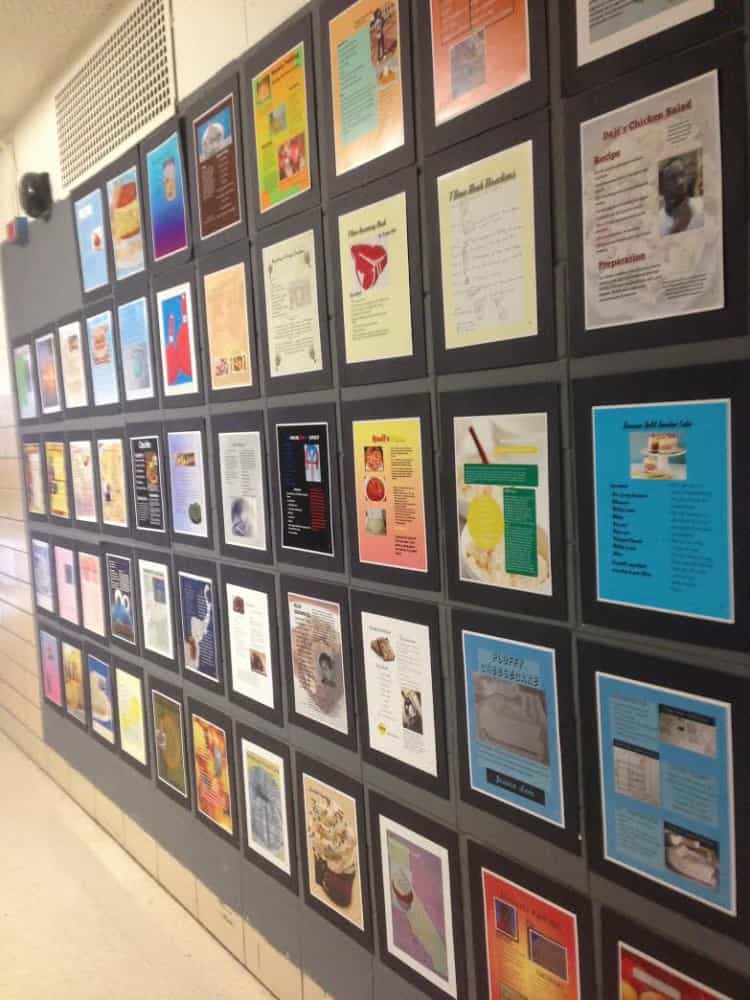
This June, each staff member will conduct a presentation of learning on their successes, challenges and growth on implementing deeper learning. The work is not done yet. Like many of us who work in schools, the process of school change is never done.
Working with this school and its teachers over the past fews years has been tremendously rewarding. It has equally challenged and reaffirmed my belief that if we want to change schools, we have to start with the adults. No school is a masterpiece, but if we can design professional development that allows adults to become the best versions of themselves, then perhaps then we can create classrooms that allow students to be the best versions of themselves as well.
Ways to Practice Transformative Change
Offer Disruptive Professional Development Learning Opportunities to Staff
- Send staff to museums to see how work is curated.
- Conduct a staff professional development day where every staff member does an internship in an area outside education.
- If practicing project-based learning, ask teachers to do the project themselves first before they do it with with students.
Create a Sense of Belonging
- Start staff meetings with appreciative inquiry and celebrations.
- Create a collegial coaching program where teachers visit and provide peer feedback.
- Create your own promising practices blog or bulletin board that shares the best practices from all the staff.
Making Meaning
- Have teachers create their own personal learning plans focused on their own success and challenges.
- Use protocols – such as project tunings or consultancies – with staff, allowing teachers to examine problems of practice.
- Instead of a formal evaluation system, allow teachers to share their learning from the year in a presentation of learning to their peers.
And as Maxine Greene once said: “We are always in the process of becoming.” So take the time to celebrate, always.
This post is a part of a blog series in the upcoming “Getting Smart on Rethinking Professional Learning” Smart Bundle produced in partnership with High Tech High Graduate School of Higher Education (@hthgse). Join the conversation on Twitter using #EdLeaders or #RethinkPD and #SmartBundle.
For more, see:
Laura McBain is the Director of External Relations and Education Leadership Academy at High Tech High Graduate School of Education. Follow her on Twitter: @laura_mcbain
Stay in-the-know with all things EdTech and innovations in learning by signing up to receive the weekly Smart Update. This post includes mentions of a Getting Smart partner. For a full list of partners, affiliate organizations and all other disclosures please see our Partner page.



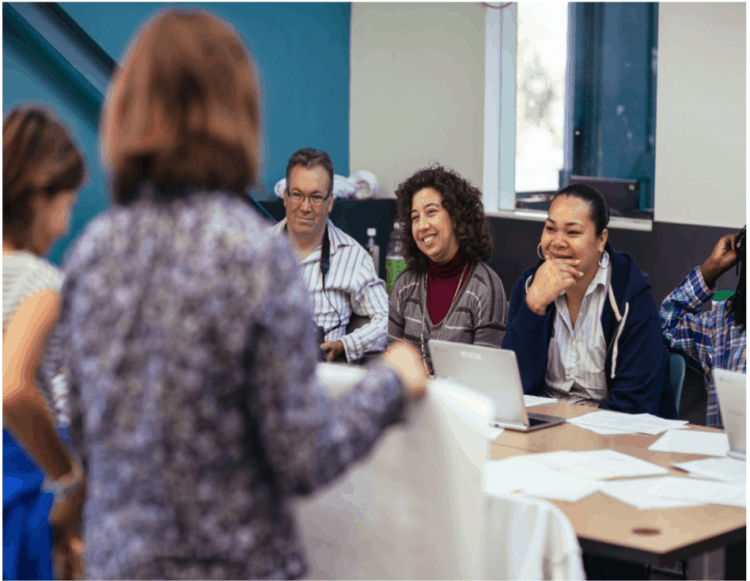
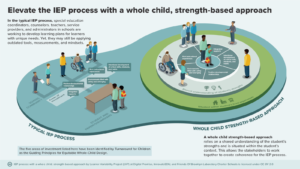
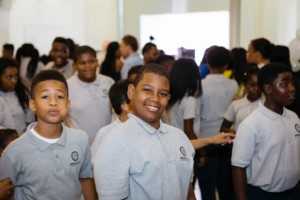
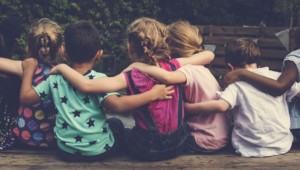
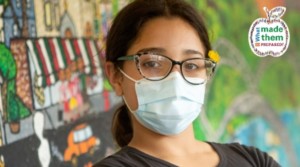
0 Comments
Leave a Comment
Your email address will not be published. All fields are required.